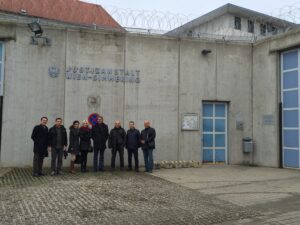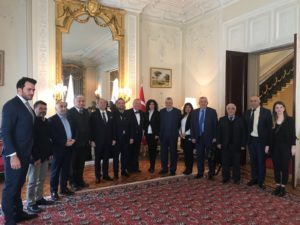
Strengthening the Internal Market
Project is comprised of six components, as follows: Component 1: Improving the strategic, legislative and institutional framework in area of Free Movement of Goods Component 2: Improving the strategic, legislative and institutional framework in area of Free Movement of Services. Component 3: Improving the legislative alignment with the

Technical Assistance for Improvement of Enforcement Services in Prisons (DEPAR)
There was a general recognition that standards and conditions in Turkish prisons needed to be improved and brought into line with international norms, particularly those operating in the EU in the context of closer EU-Turkey integration.

Technical Assistance for Border Enforcement of Intellectual Property Rights (IPR) for Modernization of Turkish Customs Administration VIII
It is essential to modernize customs legislation and practices in line with the EU standards for proper and effective implementation of the Union Customs Code. In this context, the purpose of the project was to improve the administrative capacity of the Turkish Customs Administration, raise awareness and increase

Technical Assistance on Mental Health Care and Drug Addiction Treatment Services in Prisons
Mental health and drug addiction are challenges for penitentiary systems all over the world. The purpose of this project was to tackle these issues in Turkish prisons and to bring the country’s penal services into line with international and European standards.

Technical Assistance to Support the Implementation of the Rural Development Sector Development Programme (Phase 1 + 2)
After the positive vote of the Turkish Cypriot community in the 2004 referendum to reunite the island, the European Council decided to end the isolation of the Turkish Cypriot Community and facilitate its integration with the EU. Therefore, the purpose of the project was to improve socio-economic conditions

Technical Assistance for Establishment of Rize Tea Research and Application Centre
Rize has the best reserves of tea in Turkey, however, the SMEs in the Tea region is not qualified enough to compete. Hence, the general purpose of the project was to increase the competitiveness of the tea sector concentrated in Rize and its surroundings. More specifically, it wanted

